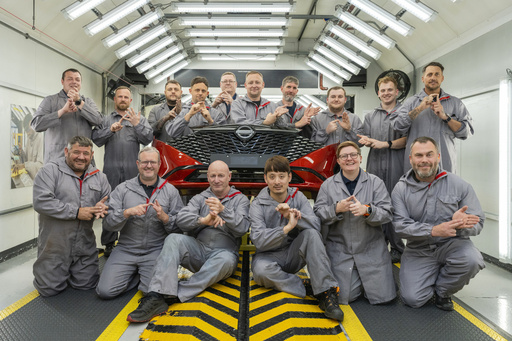In Sunderland, England, a heartwarming story unfolds at the Nissan plant where a team of 25 employees decided to learn British Sign Language (BSL) to communicate with their hearing-impaired colleague, Michael Connolly. Connolly, who is 45 years old, works in the bumper-paint team and expressed his joy at the initiative by giving two thumbs up, indicating his appreciation for his colleagues’ efforts.
The decision to learn BSL emerged as part of an overarching effort to enhance efficiency at the Sunderland plant, known for manufacturing Qashqai and Juke sport utility vehicles. Supervisor John Johnson shared that while Nissan had already taken steps to revamp training and incorporate more visual aids during briefings, the bumper-paint team took the extra step to learn sign language to foster better communication with their deaf colleagues.
Connolly, one of four hearing-impaired individuals in the team, expressed gratitude for his coworkers learning BSL, stating that while he can lipread and communicate to some extent, there are limits to this method. The initiative to bridge the communication gap and include deaf employees in everyday conversations was lauded by experts like Teri Devine, emphasizing the importance of inclusion and the benefits of having more people who understand sign language in the workplace.
Professor Cary Cooper, an expert in organizational psychology, highlighted the positive impact of kindness and inclusive behavior on workplace productivity. In the case of the bumper-paint team at Nissan, learning sign language has not only improved communication but also strengthened relationships and teamwork. This initiative transcends mere work-related discussions, allowing for personal interactions and team bonding beyond the usual professional exchanges.
